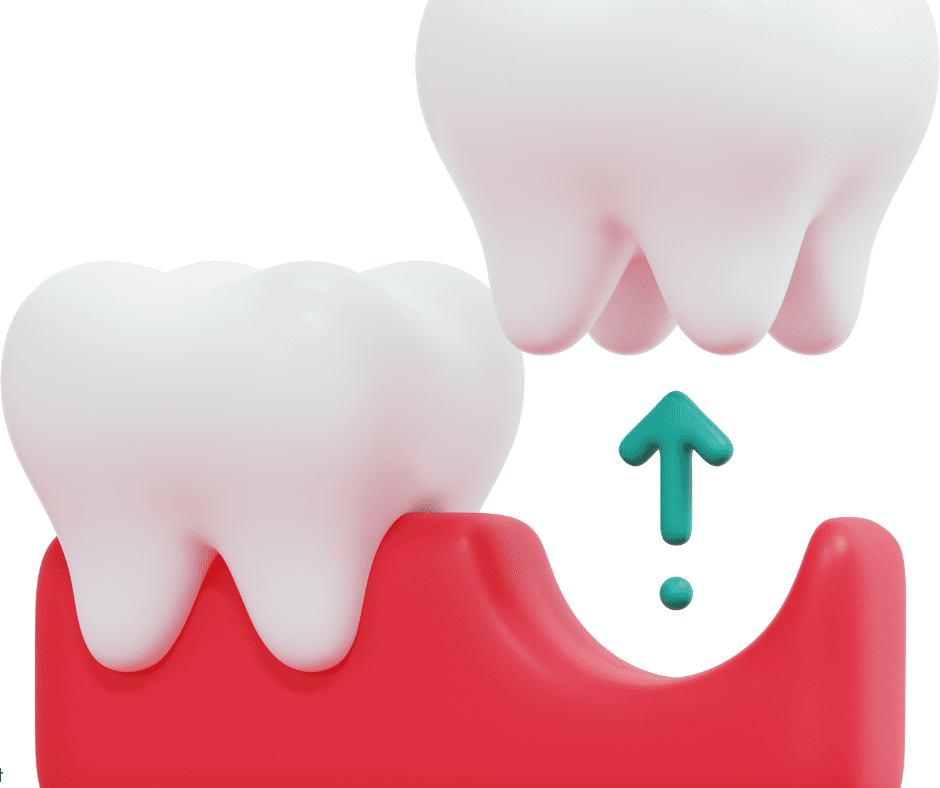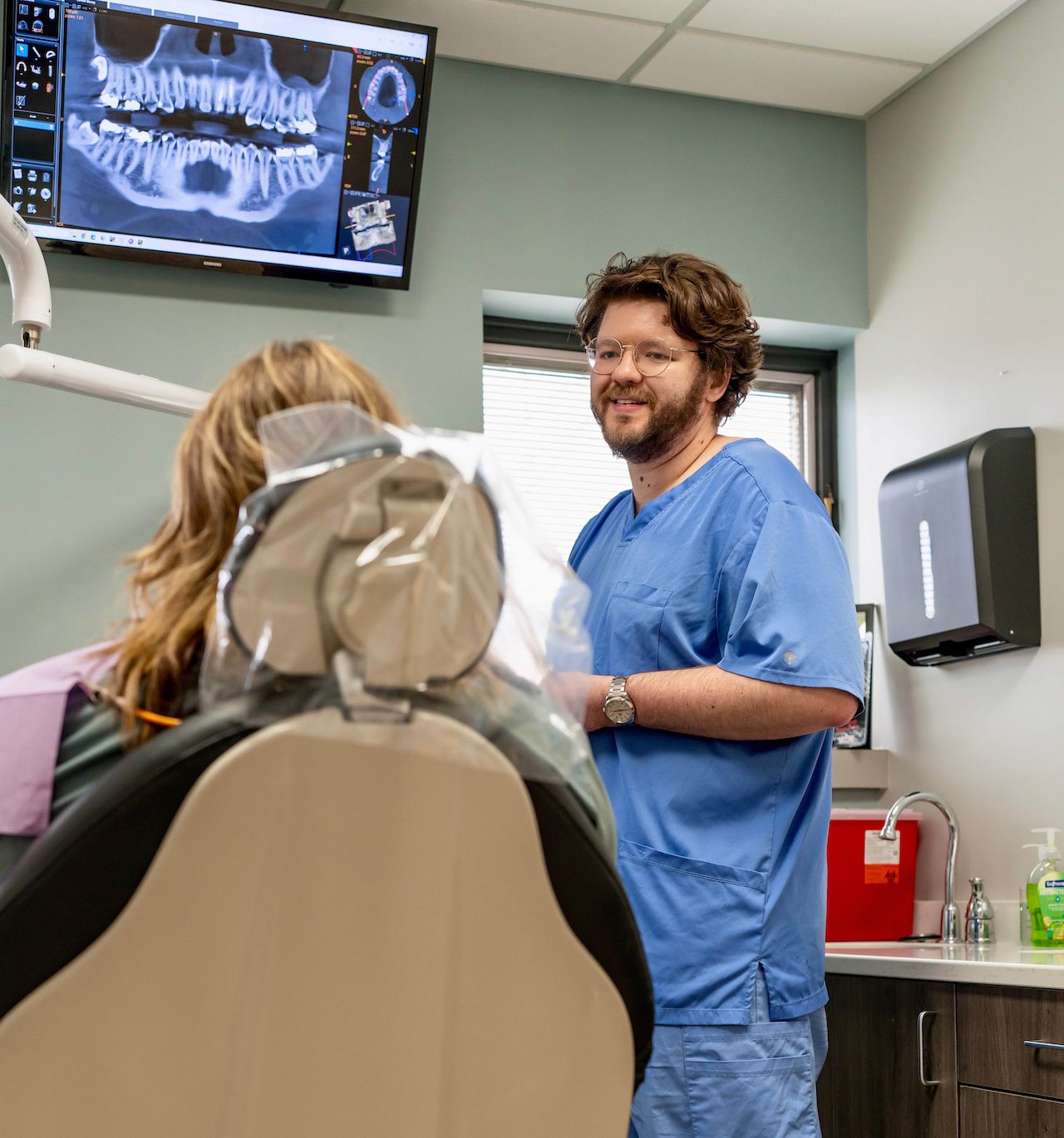Tooth Extractions in St. Louis
Tooth extractions may sound intimidating, but they are sometimes necessary to maintain oral health. At Emergency Dental of St. Louis, we understand that removing a tooth can be a scary thought. However, our team tries to make every procedure as comfortable and straightforward as possible. In this blog, we’ll cover everything you need to know about tooth extractions in St. Louis, including why they may be necessary, how to prevent them, and your options after an extraction.
What is Tooth Extraction?
Tooth extraction removes a tooth from its socket in the jawbone. It is a common dental procedure performed when a tooth is severely damaged, decayed, or poses a risk to your oral health.
There are two main types of tooth extractions:
- Simple Extraction: This procedure is performed on a tooth that is visible in the mouth and typically uses local anesthesia.
- Surgical Extraction: This is necessary for teeth that are not easily accessible, such as impacted wisdom teeth. Surgical extractions may involve a small incision in the gum and are often performed under sedation.
What Are the Reasons for Tooth Extraction?
Tooth extractions are usually a last resort when other treatments cannot save a tooth. Here are some of the most common reasons for tooth extraction:
- Severe Tooth Decay: Extraction may be the best option when cavities extend deep into the tooth and compromise its structure.
- Gum Disease: Advanced periodontal disease can loosen teeth, making extraction necessary to prevent further complications.
- Impacted Wisdom Teeth: These teeth often fail to erupt properly, leading to pain, infections, or damage to nearby teeth.
- Overcrowding: In orthodontic cases, extracting one or more teeth can create space for proper alignment.
- Infections or Abscesses: If an infection cannot be resolved with a root canal or antibiotics, the tooth may need to be removed.
- Trauma or Injury: Teeth broken beyond repair due to accidents or injuries may need removal.
Ways to Prevent the Need for Tooth Extraction
While extractions are sometimes unavoidable, proper oral care can often reduce the risk of needing this procedure. Here are some tips to protect your teeth and gums:
- Maintain Good Oral Hygiene: Brush your teeth twice daily and floss daily to prevent cavities and gum disease.
- Visit Your Dentist Regularly: Routine dental checkups allow your dentist to identify and address issues early before they require extraction.
- Protect Your Teeth: Use a mouthguard during sports and avoid chewing on hard objects like ice or pens.
- Avoid Tobacco: Smoking and other forms of tobacco increase the risk of gum disease and tooth loss.
- Eat a Balanced Diet: Limit sugary foods and drinks, and consume plenty of calcium and vitamins to support healthy teeth and gums.
What Are the Options After an Extraction?
After a tooth is extracted, consider replacing it to restore functionality and maintain your smile. At Emergency Dental of St. Louis, we offer several tooth replacement options:
- Dental Implants: These provide a permanent solution that mimics the look and feel of a natural tooth.
- Dental Bridges: A bridge uses surrounding teeth for support and fills the gap left by the extracted tooth.
- Partial or Full Dentures: These removable options are cost-effective and can replace one or more missing teeth.
- Leave the Gap: In some cases, especially with wisdom teeth, no replacement is needed.
Our team can help you determine the best option based on your dental needs and lifestyle.
FAQ Section: Tooth Extractions in St. Louis
Q: Does tooth extraction hurt?
A: Modern dentistry makes extractions relatively pain-free. Local anesthesia or sedation ensures you stay comfortable during the procedure.
Q: How long does it take to recover from a tooth extraction?
A: Most people recover within a week, but it may take longer depending on the complexity of the extraction and your oral health.
Q: What can I eat after a tooth extraction?
A: For the first few days, eat soft foods like soup, yogurt, mashed potatoes, and smoothies. Avoid hot, spicy, or crunchy foods that can irritate the extraction site.
Q: Can I drive myself home after a tooth extraction?
A: If you receive local anesthesia, you can drive yourself. However, if sedation is used, you’ll need someone to drive you home.
Q: What happens if I don’t replace a missing tooth?
A: Leaving a gap can cause surrounding teeth to shift, leading to bite issues and jawbone loss over time.
Conclusion: Tooth Extractions in St. Louis
Tooth extractions in St. Louis are sometimes necessary to protect oral health, but they don’t have to be a stressful experience. At Emergency Dental of St. Louis, our team is committed to providing gentle and effective care tailored to your needs. Whether you need an extraction, want to prevent one, or are exploring tooth replacement options, we’re here to help.
If you need a tooth extraction or have questions about your oral health, don’t hesitate to contact us. Call Emergency Dental of St. Louis today to schedule your appointment! Thank you for reading “Tooth Extractions in St. Louis”.
Stay up-to-date with the latest in dental health and wellness by connecting with us on social media! Follow us on Instagram and Facebook for regular updates, tips, and insights to keep your smile bright and healthy. Join our community today and be a part of our journey towards better oral health.

